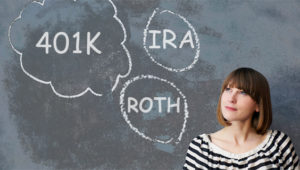ACCC says tapping retirement savings now to get through COVID-19 may compromise long-term financial health
Boston, MA – August 24, 2020

Financial hardships caused by COVID-19 and economic shutdowns across America have caused many consumers to consider such action – even as hidden costs and financial penalties threaten to chip away even more from their retirement nest eggs.
“Withdrawing from your 401(k) may seem like a quick and easy way to get through the financial insecurity consumers are feeling from these unprecedented times,” said Steve Trumble, President and CEO of American Consumer Credit Counseling. “But it is important that consumers consider all of their options before dipping into their retirement savings, which could potentially be harmful to their future.”
There is relief; however, under the federal CARES Act from some of the financial hit, people would normally take by tapping 401(k) savings. Right now, Americans do not have to pay the 10 percent penalty normally associated with withdrawal before the age of 59 ½. The CARES Act also doubled the amount one can withdraw from $50,000 to $100,000.
To qualify for early withdrawal, consumers must fall in one of the following categories: the consumer, the spouse, or dependent has been diagnosed with COVID-19, or the consumer has experienced financial hardship due to COVID-19. Qualifying financial hardships include the loss of employment, a reduction in pay, a rescinded job offer, furlough, or a delayed job start date. Other qualifying conditions include being unable to work due to childcare or the closing of a business. It is essential to know that consumers’ employers must sign off before they can withdraw, and it could take several weeks before they receive funds.
“These conditions are only in effect for the calendar year 2020,” Trumble said. “Before withdrawing from a retirement account, it is important for consumers to understand the other consequences or hidden costs associated. Although people don’t have to pay the 10 percent penalty, they are not exempt from taxes. If they don’t set some of the withdrawn money aside to cover taxes, they could end up owing a lot when they file for 2020.”
Consumers have three years to pay back the money they withdrew in 2020. If they do not pay that money back, it is then considered an early withdrawal meaning the consumer will have to pay income tax on the sum. This option may seem cheaper for the time being given the high interest rates credit card companies offer, but this is just the beginning of the financial uncertainty for some consumers, which could make it nearly impossible to pay back the sum.
“With the drastic rise and fall of the stock market throughout the pandemic, choosing a moment to withdraw from your 401(k) could be difficult. If you decided to withdraw money from your account a few months ago, your account may have suffered a significant drop in funds. It is important that consumers considering withdrawing pay close attention to the stock market,” added Trumble.
According to American Consumer Credit Counseling’s second quarter Financial Health Index, 22 percent of respondents had already borrowed against their retirement accounts during the COVID-19 pandemic. The survey also found the number of respondents who are not confident at all in the U.S. economy rose from 16 percent to 23 percent from March to June. Since March, American Consumer Credit Counseling has helped 1,425 clients with financial issues related to COVID-19.
Withdrawing from a 401(k) should be a last resort for consumers. It is important that consumers consider other options such as personal loans, dipping into an emergency fund or a home equity loan.
About American Consumer Credit Counseling
American Consumer Credit Counseling (ACCC) is a nonprofit credit counseling 501(c)(3) organization dedicated to empowering consumers to achieve financial management through credit counseling, debt management, bankruptcy counseling, housing counseling, student loan counseling, and financial education concerning debt solutions. To help consumers reach their goal of debt relief, ACCC provides a range of free consumer personal finance resources on a variety of topics including budgeting, credit and debt management, student loan assistance, youth and money, homeownership, identity theft, senior living, and retirement. Consumers can use ACCC’s worksheets, videos, calculators, and blog articles to make the best possible decisions regarding their financial future. ACCC holds an A+ rating with the Better Business Bureau and is a member of the National Foundation for Credit Counseling® (NFCC®). For more information or to access free financial education resources, log on to ConsumerCredit.com or visit https://www.consumercredit.com/debt-resources-tools/
